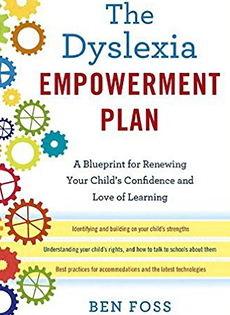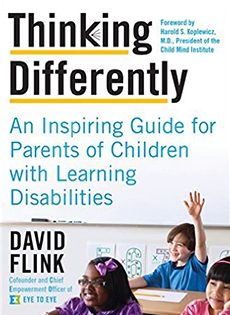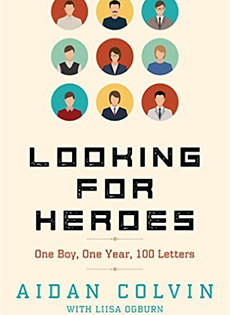Explaining Learning Disabilities to Your Child
Explaining a learning disability diagnosis to your child isn’t easy, but it's important to take this opportunity to create an open and honest dialogue. While every student is different, there are steps you can take to make this conversation more comfortable and helpful for both parent and child.
- 31% Of parents say they have conflicting feelings about their child’s learning and attention issues and their ability to help1
- 35% Of parents say they’re deeply struggling with their attitude toward and ability to come to terms with their child’s learning and attention issues1
- 75% Of parents with children who have learning disabilities believe they could do more to help their child1
Tips for Talking to Your Child About Learning Disabilities
Be Open and Honest with Yourself
A learning disability diagnosis can be tough for some parents. You may feel guilty, alone, or confused about how best to help your child. To combat feelings of isolation and inexperience, seek out a community of parents who can relate to your situation and offer personal advice.
Get Informed
The more you know about your child’s specific learning disability, the better. Plenty of great resources are available from your local library or online. We recommend Churchill’s Learning Disability Resources, Understood, and LD Online.
Frame It as an Ongoing Conversation
It’s impossible to answer all of your child’s questions and concerns in one conversation, so don’t feel like you have to. Think of this as a gradual, informal, and sequential discussion that will take place throughout your child’s life.2
Be Open and Honest with Your Child
Self-knowledge is critical for your child’s self-esteem and motivation. Knowing that he or she has a diagnosed and treatable condition is comforting — especially as opposed to the alternative of not knowing what is wrong or why school is difficult. With that in mind, don’t hide or sugarcoat the issue for your child.2
Explain What the Disorder Is (and Isn’t)
“Dyslexia” and “ADHD” don’t mean much to a young child. Take the opportunity to explain what the disorder is and how it affects the way they learn. Also clear up any misconceptions that your child may have about the diagnosis, for example, “I’m stupid,” or “Dysgraphia will go away when I get older.”2
Try Not to Overwhelm
Keep your child’s vocabulary in mind when explaining his or her learning disability. Use words that are familiar to him or her — for example, you may describe ADHD to a five-year-old as “wiggly,” but introduce more clinical terms for an older child, such as “distractible.” Aim to provide small, digestible amounts of information in a series of conversations rather than cramming in all the details at once.2
Give Them Someone To Relate To
It’s easy for a child with learning disabilities to feel isolated and alone. Talk about people the child knows who have dealt with similar diagnoses — whether a parent, neighbor, or teacher. Remind your child that while it isn’t always easy for this person, they found strategies that help.2
Stay Positive
Amidst all of this conversation about what your child can’t do, be sure to remind them of all the things they can do. Point out specific strengths, for example, “You’re great at multiplication tables,” or “Skating and hockey are easy for you.”2
Identify Your Child’s Support System
It’s important for children with learning disabilities to know that they are not alone. Make a list of all of the people who are there to support your child — whether parents, siblings, teachers, tutors, or otherwise.2
Responding to Common Myths Children Have About Learning Disabilities
Myth:I have a learning disability. That means I’m stupid.
Fact:Your learning disability may make certain tasks harder, but it does not mean you’re not as smart as other students. Things that are easy for you may be hard for other students.
Myth:My learning disability will go away when I’m in middle school.
Fact:You’ll find ways to make it easier to do the things that are hard for you, but your learning disability is something that will stay with you throughout your whole life.
Myth:I’ll never be able to do the things that are hard for me.
Fact:You may have to work harder than the other students in your class, but there are strategies you can learn that will help you do the things that are hard for you. Plenty of people with learning disabilities learn to read, write, do long division, and any of the things that are tough for them.
Myth:It’s unfair for me to get special accommodations, like extra time on tests.
Fact:Fairness does not mean everyone gets the same thing. According to the law, students with learning disabilities are allowed to have certain accommodations to help them succeed in school. You don’t have to feel embarrassed or guilty about using these resources.
Myth:Not many other children have learning disabilities like me.
Fact:Studies show that 10-15% of school-aged children have a learning disability. There are plenty of students with learning issues similar to yours.1
Additional Resources on Talking to Your Child About Learning Disabilities
Shop through AmazonSmile and Amazon will donate 0.5% of your purchase to Churchill.

References
- Cortiella, Candace and Horowitz, Sheldon H. The State of Learning Disabilities: Facts, Trends and Emerging Issues. New York: National Center for Learning Disabilities, 2014, from http://www.ncld.org/wp-content/uploads/2014/11/2014-State-of-LD.pdf
- Explaining Learning Disabilities to Your Child. (n.d.). Retrieved September 06, 2016, from http://www.ldonline.org/lavoie/Explaining_Learning_Disabilities_to_Your_Child


